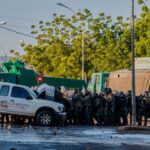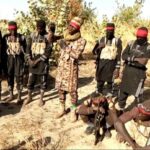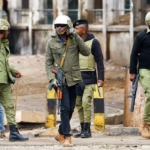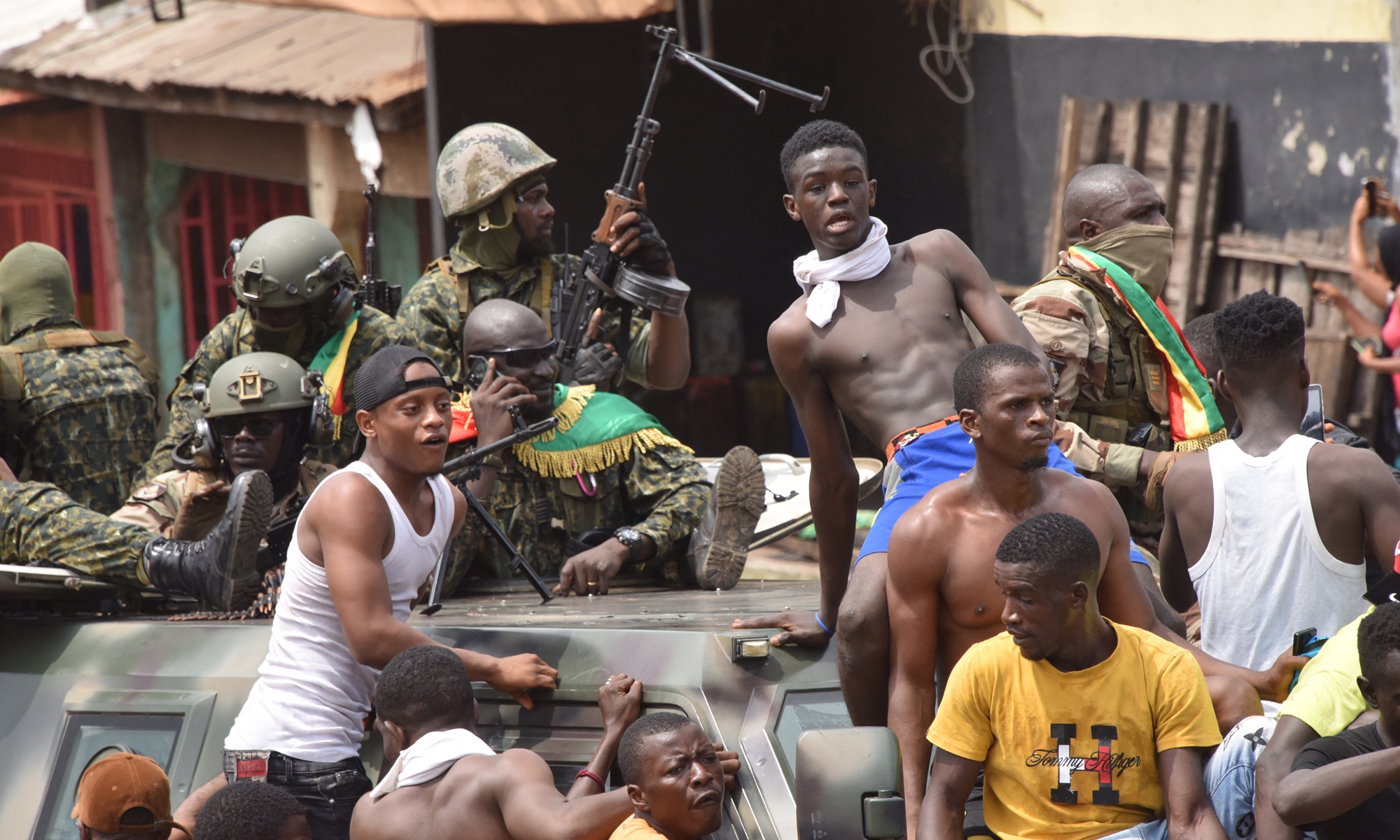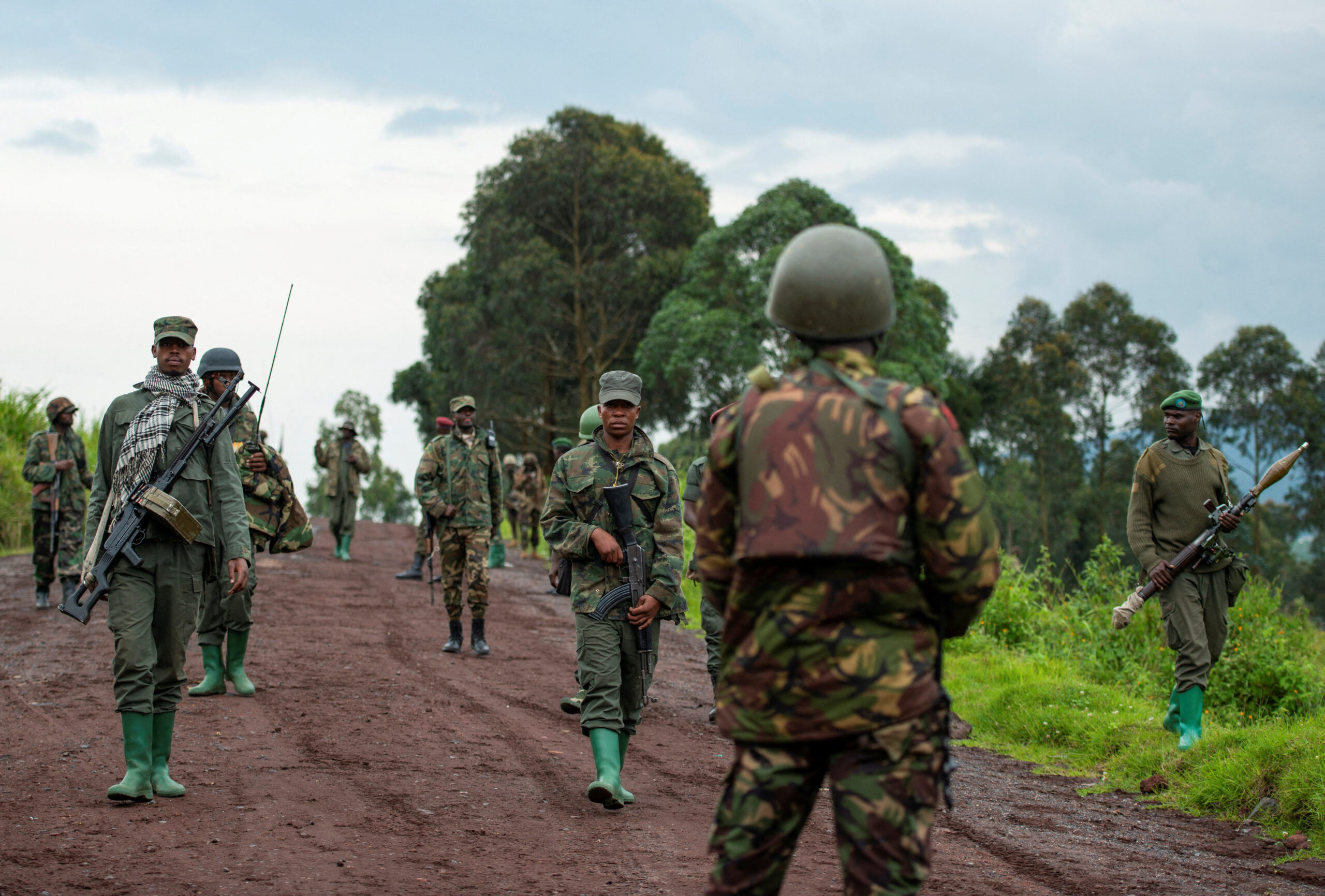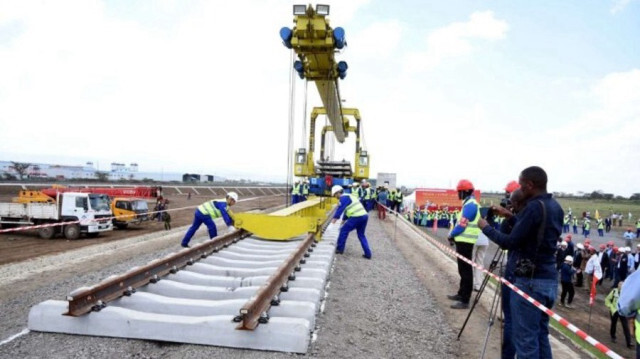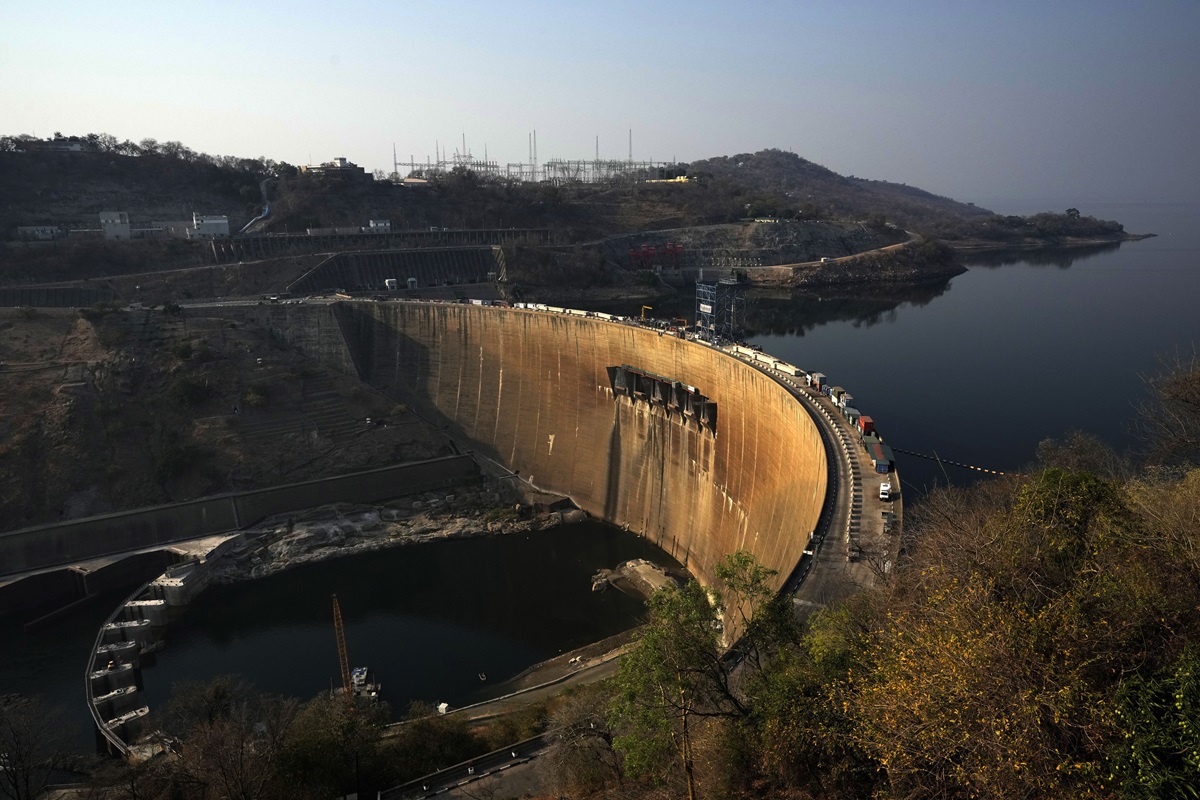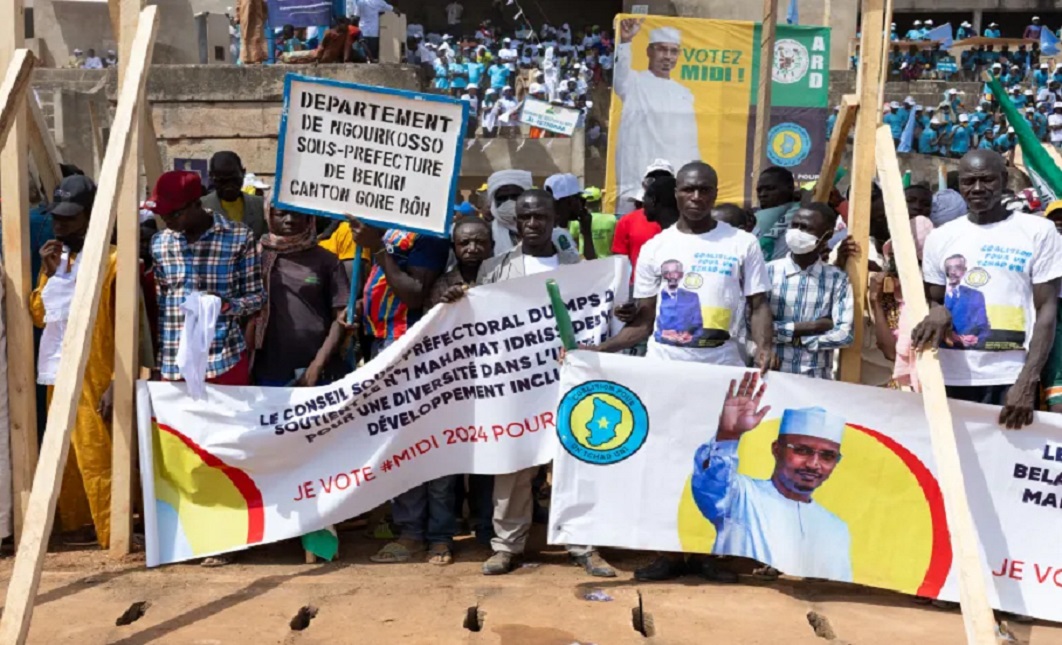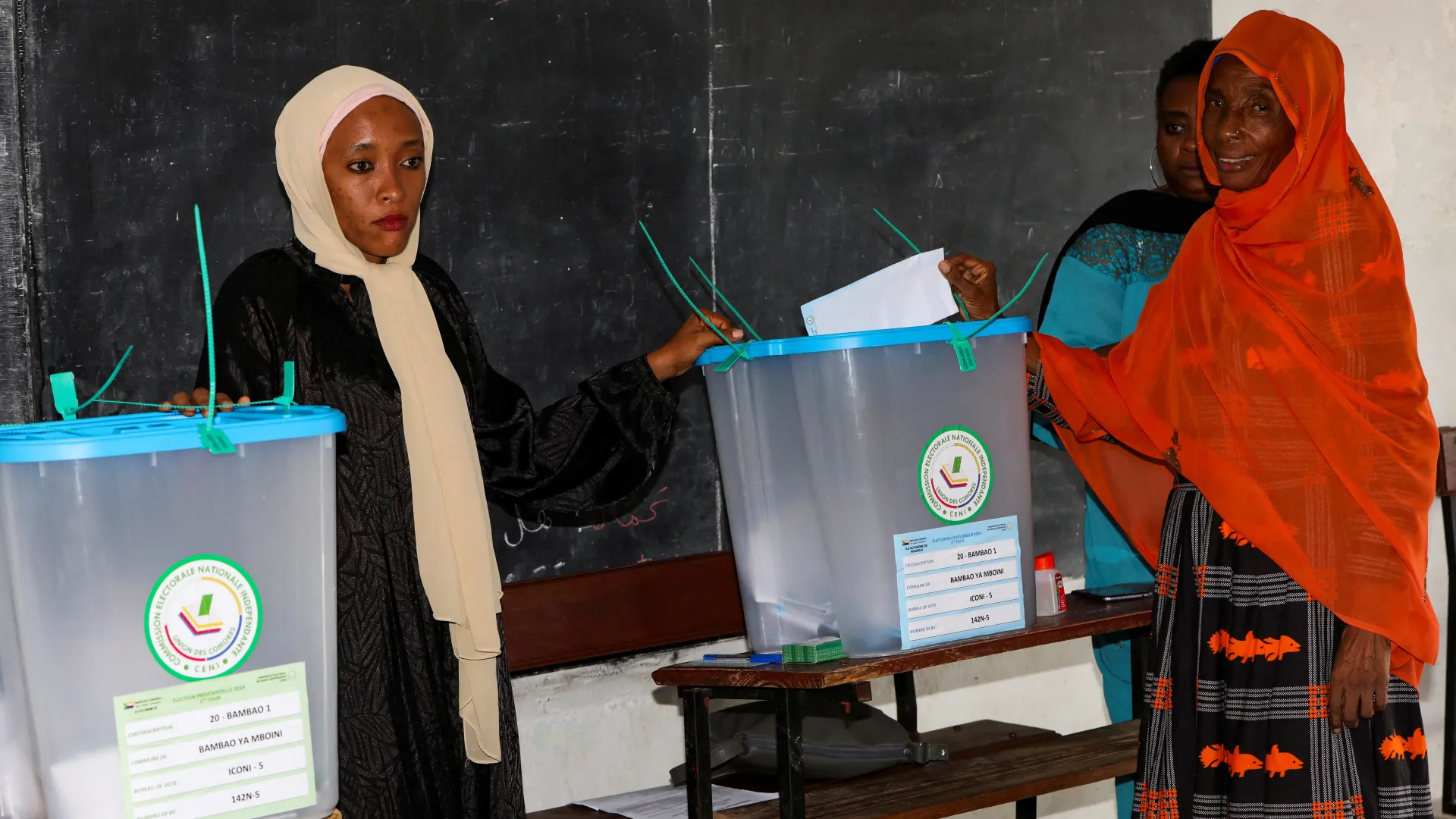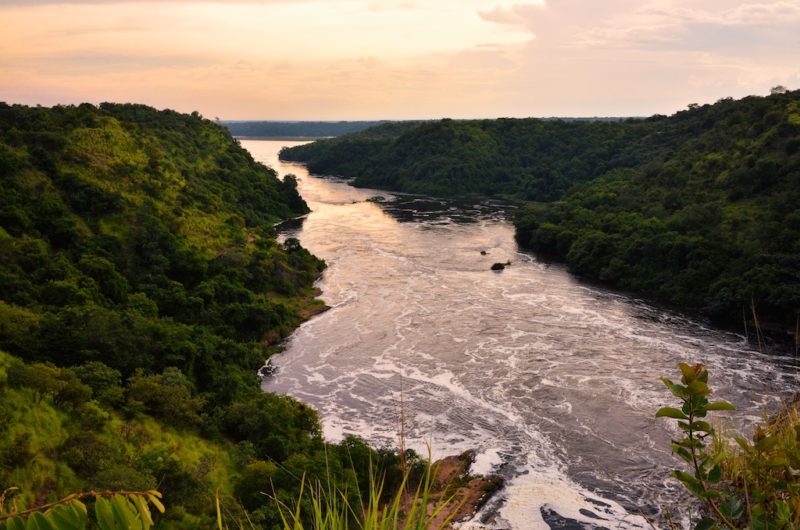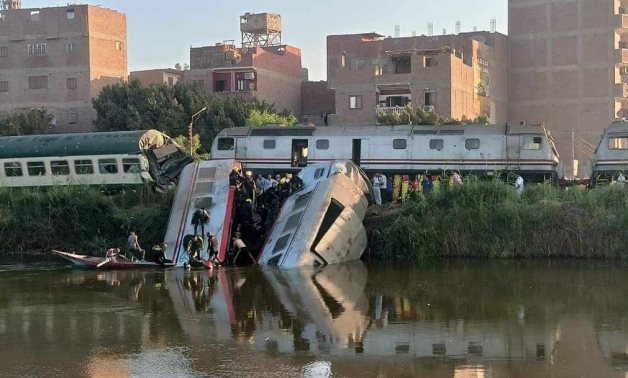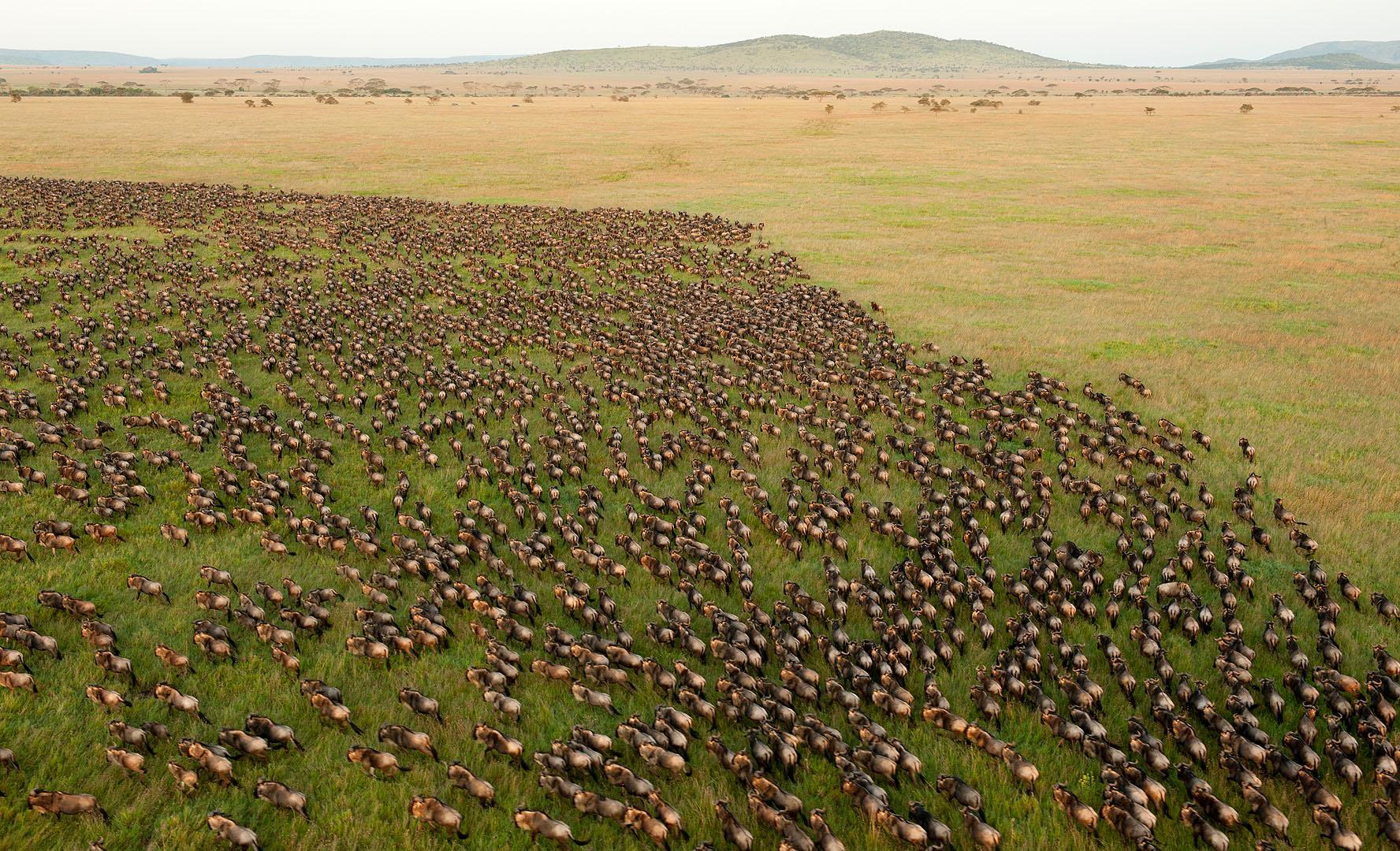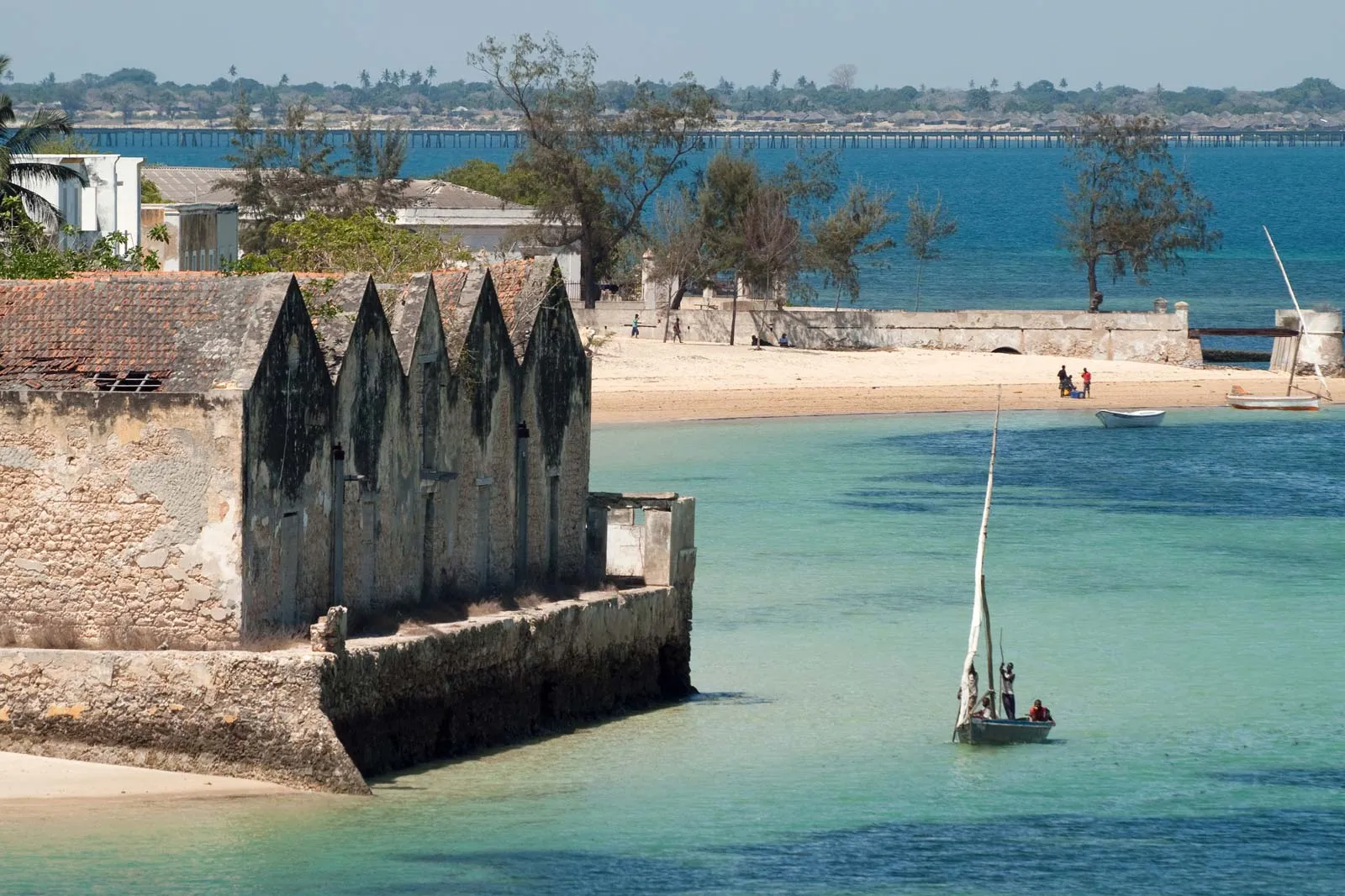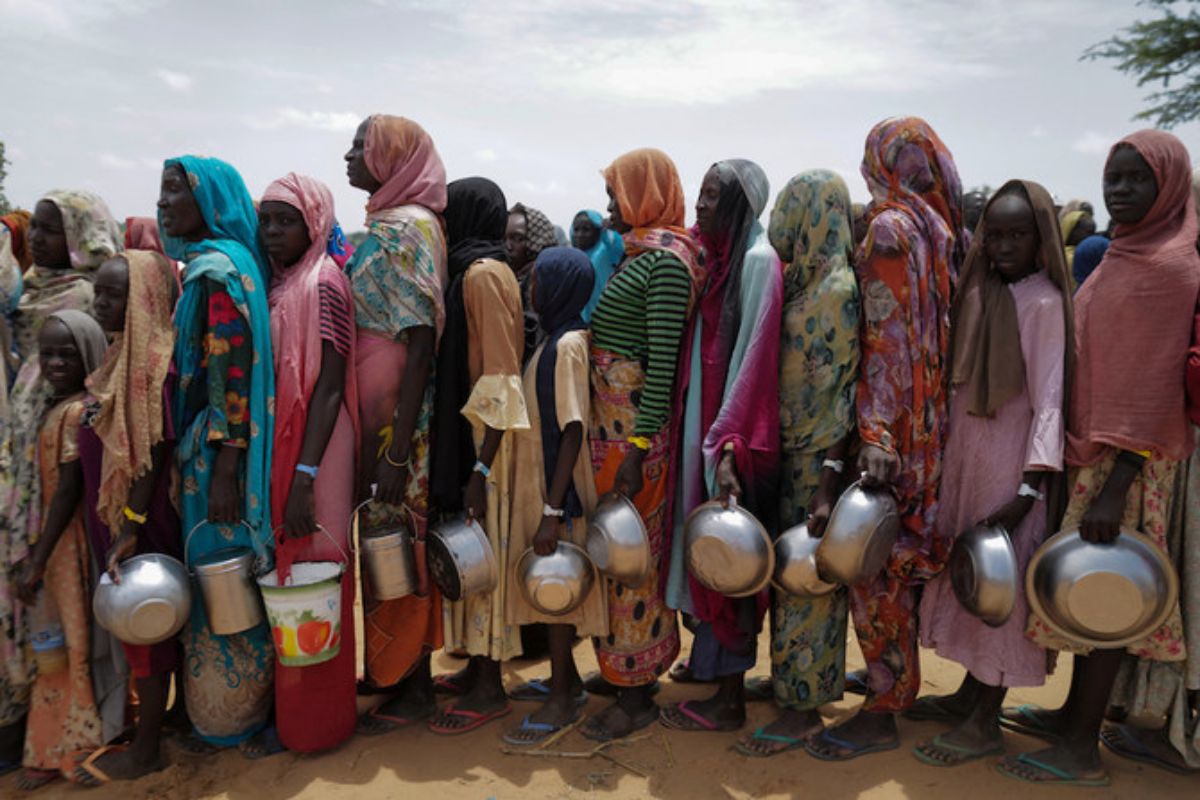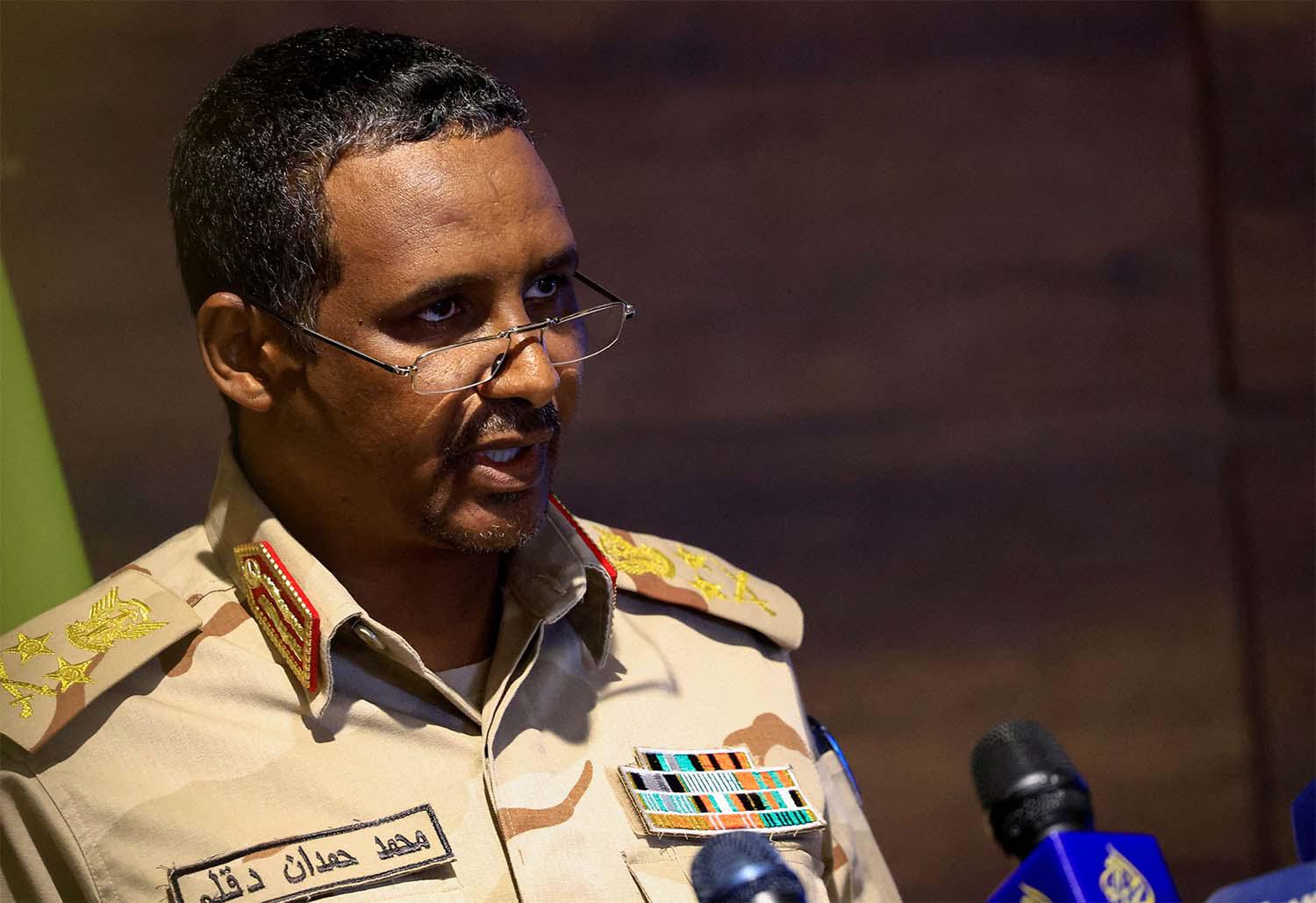Two killed in Guinea protests against Chinese mining firm
Deadly protests erupted in eastern Guinea against a Chinese mining company, resulting in the deaths of two people and injuries to four others.
Senegal unveils 25-year economic sovereignty plan
The plan aims to increase energy independence, reduce the budget deficit, and improve governance.
ICC renews probe into DRC war crimes
The investigation will focus on the responsibility of all parties involved, including the Rwanda Defence Forces and the M23 rebel group.
Madagascar’s “superhero” frog freezes itself to survive harsh seasons
An extraordinary amphibian possesses a survival trait that rivals the abilities of any comic book superhero
Uganda partners with Turkish firm to build 272-km railway
New Standard Gauge Railway aims to boost regional trade, connect Uganda to Indian Ocean ports
Zambia faces severe energy crisis as drought drains Kariba dam
Zambia is grappling with a climate-related energy crisis that has severely diminished its power supply. Frustrated residents are even transporting their entire desktop computers to local cafes to work. The country is experiencing unprecedented electricity blackouts due to a severe drought that has left the Kariba dam, the source of much of its power, with critically low water levels. This massive dam, built in the 1950s, was intended to provide a sustainable source of hydroelectric power by harnessing the Zambezi River. However, prolonged drought conditions, worsened by the El Niño weather pattern and rising temperatures, have pushed Zambia’s hydroelectric capacity to the brink of collapse. Currently, only one of the six turbines at the dam can operate, generating less than 10% of its normal output. With over 80% of Zambia’s electricity coming from Kariba, residents often experience just a few hours of power each day, and some areas go days without any electricity. The situation is particularly detrimental to small businesses, which struggle to operate during daylight hours. Tindor Sikunyongana, who runs a welding business, expressed his frustration, noting that his generator ran out of diesel while he was speaking. He has tried to mitigate the impact by investing in a diesel generator, but the cost of fuel is often prohibitive. Experts warn that Zambia’s heavy reliance on hydroelectric power has left it vulnerable. Geoffrey Chiyumbe, Vice Chairman of the Energy Committee at the Engineering Institute of Zambia, noted the risks of depending on hydro for 85% of the energy supply and emphasized the need for a more diverse energy mix to prevent crises like the current one. At the Kariba dam, the 128-meter-high wall is nearly exposed, with a reddish-brown stain marking where the water once flowed in better times over a decade ago.
Tito Mboweni, SA’s first labour minister post-apartheid, dies at 65
Tito Mboweni, South Africa’s first Minister of Labour after the end of Apartheid, has passed away at the age of 65. Local media reported that he died on Saturday night (Oct. 12) in a Johannesburg hospital, surrounded by loved ones, after a short illness. Mboweni was a prominent anti-Apartheid activist and served as Minister of Labour from 1994 to 1999 in the Cabinet of founding President Nelson Mandela. Following this, he held the position of Governor of the South African Reserve Bank for a decade, starting in 1999. He also served as Minister of Finance during the first term of current President Cyril Ramaphosa. In a statement released on Saturday (Oct. 11), President Ramaphosa praised Mboweni as “a leader and compatriot who has served our nation as an activist, economic policy innovator, and champion of labour rights.” He expressed shock at Mboweni’s passing, noting, “Given his vitality and engaging spirit, Dr. Mboweni’s loss at 65 is deeply felt.”
Opposition calls for boycott elections in Chad
In Chad, the opposition has called for a boycott of the parliamentary and municipal elections scheduled for December 29. According to local media reports, 15 opposition political groups gathered in the capital, N’Djamena, under the slogan “No to Special and Anti-Democratic Elections.” Max Kemkoye, the leader of the Union for Democracy and Progress Party, stated that despite the opposition’s repeated calls for respect for democratic rules, freedoms, and human rights, the current government has not changed its methods. Kemkoye emphasized the need for an updated and reliable voter registry, the neutrality of electoral institutions, and guarantees of equality to ensure election security. He expressed concerns that the upcoming elections would not be free and fair, urging the public to boycott them. The call for a boycott comes amid a transitional period following the death of President Idris Déby Itno, who was killed in combat against the separatist group “Front for Change and Concord in Chad” (FACT) on April 20, 2021. His son, Mahamat Idris Déby Itno, was appointed head of the Military Transitional Council composed of 15 generals shortly thereafter. Mahamat Déby promised an 18-month transition period leading to elections, with a transfer of power to civilians and a commitment not to run for office. However, during the National Dialogue Forum held on October 9, 2022, the transition period was extended by two years, and Déby was allowed to run in the elections planned for 2024. Mahamat Idris Déby Itno was elected president on May 6, receiving 61% of the vote. The parliamentary and municipal elections, the first since 2011, are set to take place on December 29.
Boko Haram: 15 members surrender in Nigeria
Fifteen members of the Boko Haram terrorist group surrendered to the Nigerian army on Sunday, the West African nation’s military announced. A statement from the Nigerian army said it conducted an operation in the Aguata region of northeastern Borno State against Boko Haram. The statement indicated that 15 members of the group surrendered during the operation and that their camp was destroyed. Boko Haram, which has been active since the early 2000s, has carried out mass violence since 2009, resulting in the deaths of tens of thousands of people. Since 2015, the group has also conducted attacks in neighboring countries Cameroon, Chad, and Niger.
Turkey rescues 28 irregular migrants pushed back into Turkish waters
The Turkish Coast Guard on Sunday rescued a total of 28 irregular migrants forced back into the country’s territorial waters by Greek forces in the Aegean Sea. In the first of two successful rescue operations off the country’s Aegean shores, the Coast Guard Command said on its website that 14 migrants, including four children, were saved from a rubber boat off the district of Dikili in Izmir province. The other operation took place off the coast of Datca district in the province of Mugla, resulting in the rescue of an additional 14 migrants, among them seven children, from a lifeboat. All migrants were transferred to the Provincial Directorate of Migration Management for further processing. Türkiye has been a key transit point for asylum seekers wanting to cross into Europe to start new lives, especially those fleeing war and persecution. Ankara and global rights groups have repeatedly condemned Greece’s illegal practice, saying it violates humanitarian values and international law by endangering the lives of vulnerable migrants, including women and children.
Comoros sets January election date amid opposition protests
Comoros will move forward with parliamentary elections on January 12 as President Azali Assoumani continues to face criticism from his opponents.
Zimbabwe confirms first mpox cases, urges calm
Both patients are recovering and contact tracing is underway.
Dowry celebration turns deadly in South African shooting
A mass shooting in South Africa left seven people dead, including five family members, during a dowry celebration.
EU unable to reclaim funds tied to Tunisian human rights abuses
The EU is facing criticism for its inability to reclaim funds paid to Tunisia, where allegations of human rights abuses, including sexual violence against migrants, have surfaced.
Nile River pact takes effect despite Egypt and Sudan’s opposition
Ethiopia’s premier calls upon non-signatories to join ‘Nile Family’ to foster equitable use of Nile River across basin countries
Train collision in Egypt injures 20 as carriages plunge into canal
Train accident in Minya prompts emergency response, no fatalities reported
Africa hosts planet’s largest animal migration
Seen from space, this annual journey underscores the unbreakable bond between these animals
Kenyan governor, MP arrested amid deadly clashes
A Kenyan regional governor and a member of parliament were arrested after deadly clashes in Tana River County claimed 18 lives.
Sofala: A historic port and trade hub on the Swahili Coast
Sofala, a key port on the Swahili Coast of East Africa, holds a rich history as a major trading hub
Kenya and Haiti seek more support for on going violence
Kenya and Haiti’s leaders called on international partners on Friday to fulfill their commitments to the U.N.-backed peacekeeping mission in Haiti, highlighting the need for more resources as the budget is set to run out in March 2025. Kenya is leading the mission to address escalating gang violence in Haiti, having deployed nearly 400 officers, alongside around 20 police and soldiers from Jamaica. However, this falls short of the 2,500 personnel pledged by various countries, including Chad and Bangladesh. During a meeting in Nairobi, Kenyan President William Ruto announced plans to send an additional 600 officers next month. The U.N. has received $68 million of the $85 million pledged for the mission. Ruto expressed optimism about the mission’s success based on recent operations, while Haitian Prime Minister Garry Conille indicated ongoing discussions with countries like Brazil and Mexico to bolster support. Gang violence has surged in Haiti since the assassination of President Jovenel Moïse in July 2021, with gangs reportedly controlling up to 80% of the capital. This has triggered a violent backlash from civilian vigilante groups. In early October, the U.N. Security Council unanimously extended the mandate of the Kenya-led multinational force but declined Haiti’s request to transition it into a U.N. peacekeeping mission.
Hunger crisis worsens in Nigeria amid Boko Haram conflict
Humanitarian workers and locals are raising alarms over worsening hunger and malnutrition among internally displaced people in northeastern Nigeria, where the Boko Haram conflict has persisted since 2009. Although organizations like the World Food Program are providing food and essential supplies, many individuals remain inaccessible to aid, primarily located in conflict hotspots and hard-to-reach areas. Boko Haram, Nigeria’s homegrown jihadist group, initiated its insurgency in 2009 with the aim of establishing Islamic Sharia law in the country. The violence has resulted in at least 35,000 deaths and displaced 2.1 million people, according to U.N. reports. During her visit to Nigeria, Cindy McCain, Executive Director of the World Food Program, traveled to Damasak, a community near the frontlines, to meet with humanitarian workers and locals receiving aid. “How do I take food from the hungry and give it to the starving? Because that’s the choices I have to make now,” McCain remarked. She also engaged with government leaders in Borno, assuring them of the U.N. food agency’s ongoing support.
African Union Responds to Israel’s ‘unwanted’ Guterres decla...
One hundred four UN member countries and the African Union have voiced strong concern over Israel’s declaration of UN Secretary-General Antonio Guterres as an “unwanted person,” expressing their support for him. The coalition, which includes Turkey, issued a letter highlighting that Israeli Foreign Minister Yisrael Katz’s labeling of Guterres as “unwanted” undermines the UN’s capacity to fulfill its mission. The letter stressed that mediation and humanitarian assistance in the Middle East are essential responsibilities of the UN. It underscored the vital role of the Secretary-General during periods of heightened tension, affirming, “We want to reiterate our full support and confidence in the Secretary-General and his work.” The letter also expressed trust in Guterres’s dedication to peace, security, and international law, urging all parties to engage in constructive dialogue with the UN. “We demand respect for the UN’s leadership and mission,” the letter stated, calling for actions that support the UN’s vital role and contribute to a peaceful resolution of the Middle Eastern crisis. In a related development, Israel had designated Guterres as an “unwanted person,” announcing a ban on his entry into the country after he called for a reduction of tensions in the region. On October 1, it was claimed that Guterres failed to mention Iran in connection with missiles fired at Israel and did not explicitly condemn Tehran’s actions. In response to Iran’s missile attacks, Guterres stated, “I condemn the escalation of conflict in the Middle East,” and called for an urgent ceasefire.
Defiant and unbowed: RSF leader delivers fiery Sudan war speech
The speech marks Dagalo’s first formal accusation of Egypt’s direct military involvement in Sudan’s 18-month-long conflict
DR Congo’s ruling party calls for constitutional revision
Concerns rise in DR Congo as ruling party advocates constitutional reform that could lengthen Tshisekedi’s presidency beyond term limits.
MSF halts work in famine-struck Sudan camp
The United Nations and international community are urged to take urgent action to address the escalating famine crisis in Sudan.
Binance compliance chief denied bail again in Nigeria
Gambaryan, an American citizen, has been in detention since February, with both he and Binance denying the charges against him
230+ migrants reach Greek shores, half from Libya
A new route from Libya to Greece emerges as thousands of migrants seek refuge.



